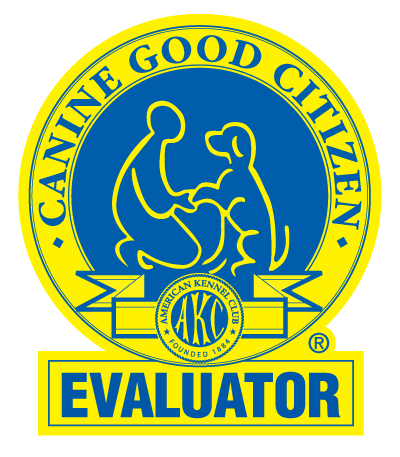Finding the right dog trainer can be a game-changer in shaping your furry friend’s behavior and overall happiness. Whether you’re dealing with a puppy’s mischievous habits or trying to correct challenging behavioral issues in an adult dog, a professional trainer can provide the guidance and expertise needed to foster a positive relationship between you and your pet. But with so many trainers available, how do you ensure you’re picking a qualified expert? This guide will help you navigate the process and choose a dog trainer that’s the best fit for your dog’s unique needs.
Understanding Your Dog’s Training Needs
Before you begin your search for a trainer, it’s important to first understand your dog’s specific training needs. Do you need basic obedience training, such as sit, stay, and come, or is your dog exhibiting behavioral problems like aggression or separation anxiety? If you’re training a puppy, early socialization and foundational skills may be your focus.
By identifying your goals, you’ll be better equipped to choose a trainer with the right skill set. For example, if your dog has behavioral challenges or anxiety, you might need a trainer who specializes in behavior modification or fear-based training. If your dog is young, a trainer with experience in puppy training and socialization will be your best choice.
Researching Training Methods
Dog training methods can vary greatly between trainers, and it’s important to find one whose approach aligns with your values. While some trainers may use traditional methods involving corrections or punishment, others may specialize in positive reinforcement, which rewards good behavior to encourage learning.
Positive reinforcement training is often considered the most humane and effective method, as it focuses on rewarding desired behaviors instead of punishing undesirable ones. Ensure the trainer you choose uses training methods that are not only effective but align with your philosophy of humane dog training. Ask potential trainers about their approach and the tools they use, such as clickers, treats, or leashes.
Evaluating Trainer Qualifications
It’s essential to ensure that the trainer you select has the proper qualifications. A well-trained dog trainer will have certifications that indicate their expertise and commitment to continuing education. Some of the most recognized certifications in the dog training industry include:
- Certified Professional Dog Trainer (CPDT): This certification demonstrates that the trainer has passed a rigorous exam and adheres to industry standards.
- Fear-Free Certified Trainer: Trainers with this certification are trained to work with fearful and anxious dogs using compassionate and non-aversive techniques.
- Karen Pryor Academy Certified Training Partner: This certification is awarded to trainers who have demonstrated proficiency in clicker training and positive reinforcement methods.
You may also want to inquire about any additional credentials, such as college degrees or specialized training in areas like scent work, therapy dogs, or service dog training. An experienced and certified dog trainer is more likely to offer the guidance needed for a successful training experience.
Specialization in Behavioral Issues
While many trainers can handle general obedience training, some specialize in more complex behavioral problems, such as aggression, separation anxiety, or excessive barking. If your dog has specific behavioral concerns, it’s a good idea to choose a trainer with experience in those areas. Specialized trainers are more likely to understand the underlying causes of your dog’s issues and can tailor a training plan accordingly.
Observing Training Sessions
Once you’ve narrowed down your list of potential trainers, consider attending one of their classes or observing a training session. This will give you an idea of their training style and how they interact with both dogs and owners. A professional trainer should be able to communicate clearly with you and your dog, demonstrating patience and empathy throughout the session.
Pay attention to the following during your observation:
- Does the trainer treat the dogs with respect and kindness?
- Are the dogs calm and engaged in the training?
- Is the environment positive and stress-free for both the dogs and the owners?
Observing a session firsthand will help you determine whether a particular trainer is a good fit for your dog’s temperament and learning style.
Checking References and Reviews
Reviews and references can provide valuable insight into a trainer’s effectiveness. Ask for testimonials from previous clients or search online for reviews. Check platforms such as Google Reviews, Yelp, or the trainer’s website for feedback from other pet owners. Positive reviews and success stories from others with similar needs will give you confidence in your choice.
Additionally, ask the trainer for references you can contact directly. Talking to other dog owners who have worked with the trainer can provide a more detailed picture of what to expect.
Questions to Ask Potential Trainers
When interviewing trainers, it’s important to ask the right questions to ensure they are qualified and able to meet your needs. Here are some questions to consider:
- What is your training philosophy and approach?
- Are you certified? What certifications do you hold?
- Do you specialize in any specific training areas, such as behavior modification or puppy training?
- Can you provide references from clients with similar training needs?
- What is the structure of your training sessions? Are they private, group classes, or a combination?
- How do you address behavioral issues such as aggression or anxiety?
- What tools do you use during training, and are they safe and humane?
Understanding Training Costs
The cost of dog training can vary depending on the trainer’s experience, location, and the services offered. On average, dog trainers in the U.S. earn $44,910 annually, but specialized trainers can earn significantly more. While private sessions may cost more, group classes can be a more affordable option.
When budgeting for training, keep in mind that consistent, long-term training may be necessary, particularly for behavioral issues. Inquire about package deals or payment plans, and ensure you understand what is included in the cost (e.g., training materials, follow-up sessions, etc.).
Considering Location and Availability
Location and scheduling flexibility are practical considerations when selecting a trainer. If you have a busy schedule, look for trainers who offer evening or weekend sessions. Proximity to your home can also make a difference in your ability to commit to regular training sessions.
If you’re looking for certified professional dog training services, check out trainers who are conveniently located near you or offer virtual training options if in-person classes aren’t feasible.
Get Started with PawHootz Pet Resort’s Training Services!
At PawHootz Pet Resort, we offer professional dog training services designed to address a variety of behavioral issues, from basic obedience to more complex challenges. Our team of experienced trainers utilizes humane, positive reinforcement techniques to ensure that your dog’s training experience is effective and enjoyable.
Contact us today to schedule a consultation and find the perfect training program for your dog. Whether you’re dealing with puppy manners or behavioral issues, we’re here to help transform your dog’s behavior and strengthen the bond between you and your furry friend.
Contact us
Learn more: www.pawhootz.com
Email us: play@pawhootz.com or call us at 817-498-6410, too!
Make an appointment with us: https://pawhootz.com/make-an-appointment/




